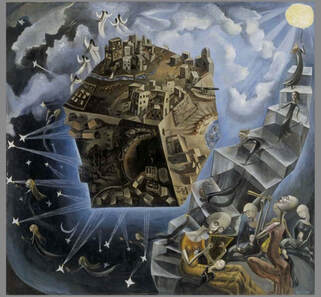 Un Mundo, by Ángeles Santo, Museo Reina Sofia
Un Mundo, by Ángeles Santo, Museo Reina Sofia
 Un Mundo, by Ángeles Santo, Museo Reina Sofia Un Mundo, by Ángeles Santo, Museo Reina Sofia What value does the book of Revelation have for us, especially in the face of ecological crises? My guess is that most of us have not spent too much time on the Bible’s last book. Some people of course have, including those looking for a special secret code to life and history, and those puzzling out different timetables for Christ’s second coming. Such interpreters however typically have little concern for ecology, and some even welcome signs of environmental apocalypse. Faced by the strangeness of John the Divine’s visions, we may therefore be tempted to dispense with the book altogether. Yet that would be a mistake. For, as this morning’s reading (ch.12 vv. 1-9 & 13-17a) illustrates, truth and light can be received in the strangest places…
0 Comments
 image by Greg Rakozy on Unsplash image by Greg Rakozy on Unsplash In his tender and tantalising work Anam Cara, John O’Donohue wrote that: “the way you look at things is the most powerful force in shaping your life.” I want to talk about three ways of looking at things suggested by our readings today – the microscopic that allows us to appreciate our own smallness and uniqueness; the telescopic that invites us to move imaginatively towards universes beyond this one; and the cosmic that calls us to a bigger story. For story is critical and it is only through story that we shall be able to effect the extraordinary changes required by our current ecological crisis... ‘Let justice flow like a river’ is the central theme of this year’s global ecumenical Season of Creation. This phrase comes from the book of Amos, chapter 5, part of which we heard just now. Let us hear how this speaks powerfully today and why people of faith are called to work and pray together…. (Watch the Laudato Sí Movement’s ‘Prepare for Season of Creation 2023’ video here...) 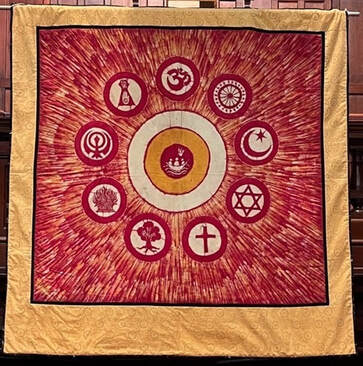 "What's in a name?”, said Juliet: “That which we call a rose. By any other name would smell as sweet.” Shakespeare’s famous lines speak of the power of names and designations. He presents Juliet, on her balcony, musing on the rose as a metaphor, in the context of her love for Romeo and the intense, age-old, conflict between two tribes - the Capulets (Juliet’s mob) and the Montagues (Romeo’s mob). Juliet proclaims that names have no ultimate meaning, other than those which people are willing to give them. As she puts it, in reference to Romeo: “Tis but thy name that is my enemy…. What’s Montague? It is nor hand, nor foot/ Nor arm, nor face. O be some other name/ Belonging to a man.” We do not, says Juliet here, have to be controlled by our names, by our tribes. We can choose how to live with them, and, in love, transcend them. Of course, Shakespeare’s story of the young lovers ends in tragedy. It is challenging to live with, and beyond, our names, our tribal identities. It can bring misunderstanding, opposition, and much worse. Yet is this not the path of true love, in the fullest dimensions of those words? Certainly, as we come today to bless our beautiful new interfaith banner, we do so in awareness of that same call to honour the different names of God, and not to let them control and divide us. For in the depth of all the world’s great wisdom traditions, true love, divine love, is not simply about reaffirming what is valuable in our tribal identities. True love is also about walking paths of inner and outer transformation together… One of the puzzles Christians have sometimes set themselves is to work out what light is being referred to in the first few verses of the Bible. For, apart from modern light forms, we are so used to thinking of light from the sun and moon, which, in the Genesis account, are only created later. Various possibilities have therefore been suggested by the great theologians. Some (such as Ephrem of Syria) have thus suggested the light was a pillar of fire, or (like Basil of Caesarea) that the essence of the sun without its actual substance, or even that the light came for the angels (in the case of Augustine of Hippo). However, in so far as we might respond, I think I would go with the Orthodox Church’s understanding of ‘the uncreated light’ of God in Godself. For, when we come to the first chapter of Genesis. we are speaking here of divine mystery, depth, purpose and ultimate meaning, not literal or even limited symbolic explanation of Creation. Rather, like our second reading today (For Light by John O’Donohue), the nature of Genesis chapter 1 is poetic and prayerful, seeking to lead us into sacredness. For above all, such texts are designed to renew our sense of wonder and participation in divine creation and our role as priests of God’s Creation…
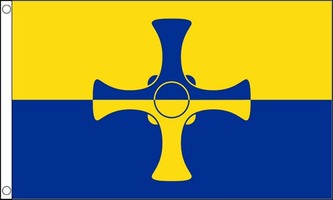 Today, where I was born, it is Wor Cuddy’s Day – that is to say, Our Cuthbert’s Day, the day of the greatest of the so-called ‘northern saints’, Cuthbert of Lindisfarne. Now Cuthbert lived back in the 7th century of the Christian era, but his influence lives on strongly, especially among the people of the north east of England. For, historically, Cuthbert is the official ‘Protector of the North’, not least of County Durham, in which I was born. So today, the 20th March, has become County Durham Day and the county flag flies high, with the distinctive cross of St Cuthbert emblazoned on the colours of blue and gold (see the front of the liturgy sheet). More significantly for all of us however, there are aspects of Cuthbert’s life which are still life-giving. Not least, this is in terms of a spirituality which seeks to learn from the more than human environment, of God speaking to us intimately through the land and seas - and through the birds, animals and other creatures with which we share them. For, as we hear Jesus’ parable of the fig tree today, and reflect on our Lenten themes, we are encouraged to recognise the great breach between humanity and God’s wider Creation. With Cuthbert, we are called to return our hearts to the heartbeat of Creation and to live more kindly in rhythm with it… One of my favourite contemporary spiritual songs is that which we heard before the beginning of our worship today – ‘I Am Mountain’ by Gungor (see YouTube link above). The lyrics are evocative of both rich ancient understandings and the best insights of modern life and science. They speak of profound presence, of the immanence and transcendence of the divine. They direct us to the heart of the life-giving spirituality of this Season of Creation. For, in Gungor's words, and ancient Christian orthodoxy proclaims, ‘there’s glory’ (‘beauty’ and ‘mystery’) in the dirt.’ As Christian, and other mystics, have affirmed, there’s ‘a universe within the sand, eternity within’ a human being. Often, we may indeed feel ourselves to be ‘wandering in skin and soul/ Searching, longing for a home’. Yet in truth, in memorable phrases, we are invited to see ourselves as:
Momentary carbon stories From the ashes Filled with holy ghost In the face of the climate emergency, we are also called, by ‘the light’, to ‘fight, fight for our lives’ - as we have also explored, particularly in last week’s reflections and discussions. However, above all, we are encouraged to acknowledge more deeply the wonder of the divine existence we share. For we are intimately related to our extraordinary world. All metaphors, as Gungor says, then begin to break down in the face of this astounding mystery and reality, as: Life is here now Breathe it all in Let it all go You are earth and wind… WWJD – What Would Jesus Do – in the climate emergency? In the face of the increasing climate crisis, highlighted by the latest IPCC report and weather events across the world, how are we to react? As people of faith, what might guide us in our responses, as individuals and as a community together? This is the challenge which, with Gerard and Vivien, I ask us all to consider today. For, during this Season of Creation, we have rightly given expression, in several different ways, to our wonder at God’s world of which we are a part. We have joined with others elsewhere and received the gifts of Ecopella and other artists. We commit ourselves to continuing to grow more deeply in the soil of God’s love in Creation and to share more deeply in that grace and beauty. What however will we now do to honour that same Spirit of Christ?...
When you step out of your door in the morning, do you feel that you are stepping into a world of wonder in which you are intimately connected? Or, are you simply stepping into mere location? Is it just dead space which you are crossing so that you can get to where you need to go? Or, do you believe you are walking into a living universe? Those are questions which the great spiritual writer John O’Donohue used to ask and they lie right at the heart of the Season of Creation we have just begun this month. For it matters vitally how we view the world and where we locate God in relation to it. So much of our politics, our business and trade activities, and our lifestyles, are affected. If we believe that matter, material existence, doesn’t really matter to God, then we will end up acting in problematic ways. Or, as John O’Donohue used to say, if we do believe that when we step out we are walking into a living universe, then our walk ‘becomes a different thing’. So let us explore some of the theological paths which can underpin more loving and sustainable ways of living together on the Earth…
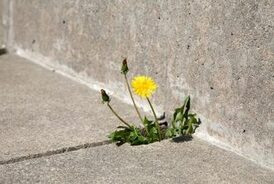 Years ago in the east end of London, I met a remarkable little old lady. She was what some call a ‘bag lady’: a homeless woman who carries her possessions with her, perhaps in just a pair of plastic bags. Her story was typical of many homeless people, although very unique, like that of every homeless person. In this lady’s case, she would tell a very brief biographical tale on a kind of continuous loop. This began with the words ‘I was a Barnados girl’, which, when repeated would start her off again on her abbreviated life-story. Was she then a sad person lost in a tiny, poor and vulnerable world, cut off from the rest of us? No, not exactly. For, in some ways, she was more in touch with existence than most, if not all of us. For this seemingly poor and aged waif had an amazing quality: namely the ability to see the plants and the animals alive around her, even in the middle of such a busy and environmentally threatening city as London then was. If you walked along with her for just a minute or two, she would point out, and open your eyes and ears to, the animal and plant life you almost always missed: the grass and the sometimes beautiful flowers which pushed through the concrete and the cracks; the birds and the insects and the urban wildlife, which, sometimes incomprehensibly, managed to thrive in the otherwise all-too-human jungle of the city. Almost everyone else was too busy, or too self-obsessed, to ‘consider’ these ‘lilies of the field’ and ‘birds of the air’. It took a similarly overlooked human being to notice and to celebrate these astonishing signs of God’s resistance. And, as she drew you into such contemplation and celebration, you thereby discovered the presence of mystery and grace. |
Authors
sermons and reflections from Penny Jones & Josephine Inkpin, a same gender married Anglican clergy couple serving with the Uniting Church in Sydney Archives
June 2024
Categories
All
|
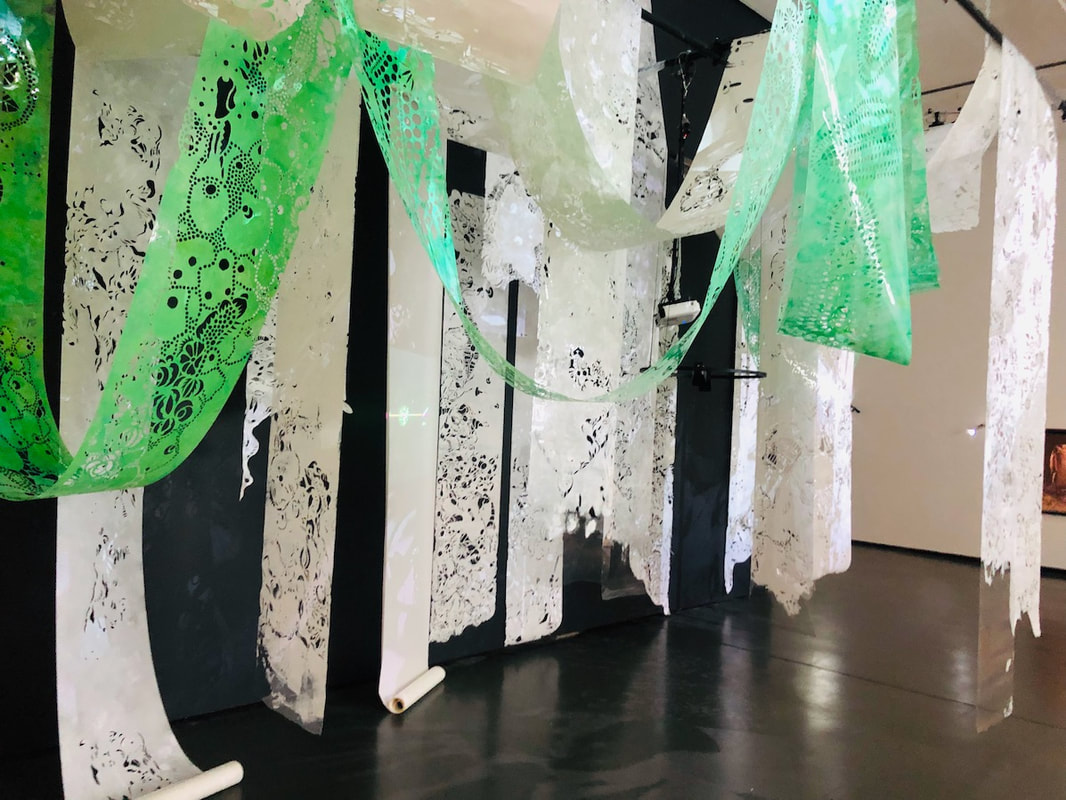
 RSS Feed
RSS Feed